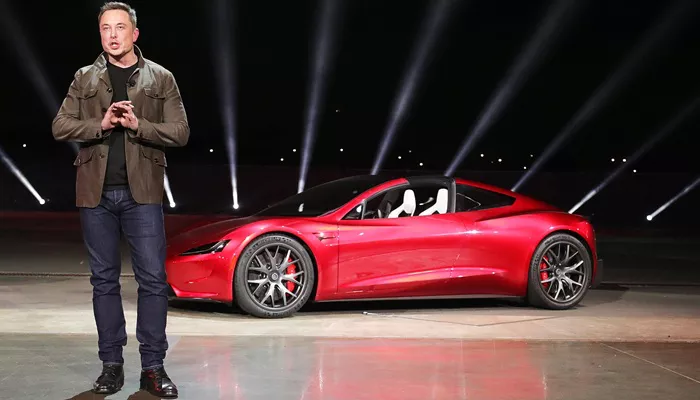SAN FRANCISCO, March 20 (Reuters) – A record number of Tesla electric vehicles have been traded in this month, as protests against CEO Elon Musk’s involvement with U.S. President Donald Trump grow, according to data from Edmunds.
Vehicles from Tesla’s 2017 model year or newer made up 1.4% of all trade-ins through March 15, a significant rise from 0.4% in the same period last year. Analysts at Edmunds, the national car shopping site, expect this percentage to increase in the latter half of the month. In February, Teslas accounted for 1.2% of vehicles traded in, during President Trump’s first full month in office.
If the trend continues, March will mark the highest monthly share of Tesla trade-ins ever recorded by Edmunds, excluding trade-ins for new Teslas or electric vehicles (EVs) from other direct-to-consumer brands.
Musk’s role as an adviser in the Trump administration, particularly in leading the Department of Government Efficiency, has sparked anger across the U.S. Activists have organized “Tesla Takedown” protests against Musk’s influence, particularly regarding federal workforce cuts and the cancellation of contracts that support global humanitarian programs. Tesla owners in the U.S. and Europe have taken to social media to display their discontent by trading in their vehicles.
“Brand loyalty is becoming a bigger concern as Musk’s growing public involvement in government, fears over Tesla depreciation, and the brand’s increasing presence in major cities leave some longtime owners feeling disconnected,” said Jessica Caldwell, Edmunds’ head of insights.
Both Tesla and Musk’s spokespeople did not immediately respond to requests for comment. Tesla has previously stated it expects growth in its vehicle business this year, following a slight decline in 2024.
Meanwhile, the prices of used Teslas have dropped, in line with other EVs from brands like Ford, Kia, and Hyundai. Edmunds analysts expect these prices to fall further as more Tesla trade-ins, after reconditioning, make their way to the market.
The backlash against the brand has led to incidents where Tesla vehicles were set on fire and damage to the company’s showrooms and charging stations. Trump has called such attacks “domestic terrorism.”
Tesla’s stock, which surged after Trump’s election on hopes that the company would gain easier access to roll out robotaxis, has now nearly halved from its peak in January.
Fred McKinney, a corporate consultant, traded in his 2018 Tesla Model 3 last month in protest of Musk. “I thought about putting a bumper sticker on my car saying, ‘I hate Musk.’ But selling the car feels so much better,” he wrote in a LinkedIn post. “If you’re considering a new EV, under no circumstances should you buy a Tesla.”
Edmunds data also showed that interest in new Teslas dropped to 1.8% in February, the lowest level since October 2022, down from a high of 3.3% in November.
Tesla’s sales likely fell 10% in February, hurt by declines in models like the Cybertruck, Model 3 sedan, and Model Y SUV, according to separate estimates from market research firm Cox Automotive.
“These shifts in Tesla’s consumer sentiment could provide opportunities for traditional automakers and new EV startups to gain ground,” Caldwell said. “As Tesla’s brand loyalty weakens, companies offering competitive pricing, new technology, or less controversy may attract former Tesla owners and first-time EV buyers.”

